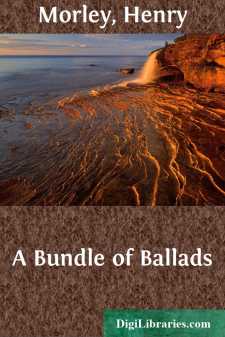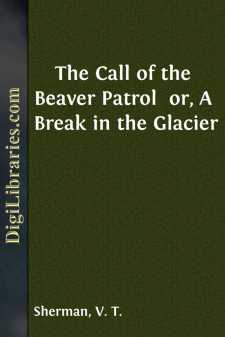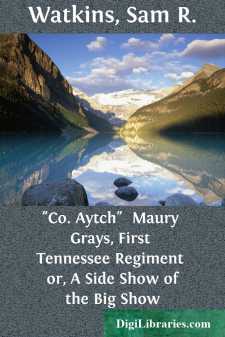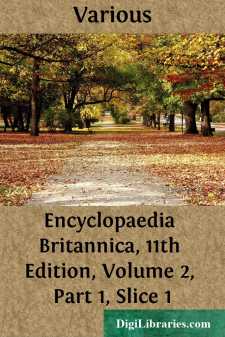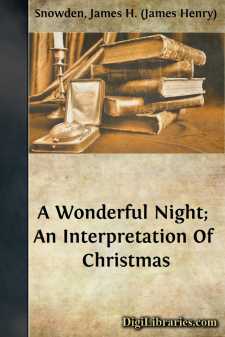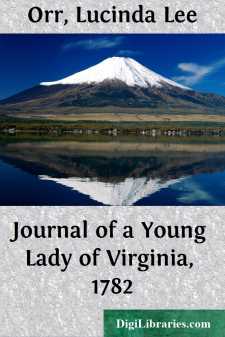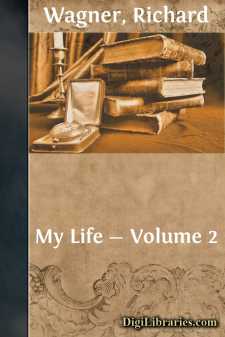Categories
- Antiques & Collectibles 13
- Architecture 36
- Art 48
- Bibles 22
- Biography & Autobiography 813
- Body, Mind & Spirit 142
- Business & Economics 28
- Children's Books 17
- Children's Fiction 14
- Computers 4
- Cooking 94
- Crafts & Hobbies 4
- Drama 346
- Education 46
- Family & Relationships 57
- Fiction 11829
- Games 19
- Gardening 17
- Health & Fitness 34
- History 1377
- House & Home 1
- Humor 147
- Juvenile Fiction 1873
- Juvenile Nonfiction 202
- Language Arts & Disciplines 88
- Law 16
- Literary Collections 686
- Literary Criticism 179
- Mathematics 13
- Medical 41
- Music 40
- Nature 179
- Non-Classifiable 1768
- Performing Arts 7
- Periodicals 1453
- Philosophy 64
- Photography 2
- Poetry 896
- Political Science 203
- Psychology 42
- Reference 154
- Religion 513
- Science 126
- Self-Help 84
- Social Science 81
- Sports & Recreation 34
- Study Aids 3
- Technology & Engineering 59
- Transportation 23
- Travel 463
- True Crime 29
Sort by:
by:
Henry Morley
INTRODUCTION BY THE EDITOR. Recitation with dramatic energy by men whose business it was to travel from one great house to another and delight the people by the way, was usual among us from the first. The scop invented and the glee-man recited heroic legends and other tales to our Anglo-Saxon forefathers. These were followed by the minstrels and other tellers of tales written for the people. They...
more...
by:
V. T. Sherman
Chapter I CAMPING IN THE BREAKER "And so I says to myself, says I, give me a good husky band of Boy Scouts! They'll do the job if it can be done!" Case Canfield, caretaker, sat back in a patched chair in the dusky, unoccupied office of the Labyrinth mine and addressed himself to four lads of seventeen who were clad in the khaki uniform of the Boy Scouts of America. Those of our readers who...
more...
I. In the year nineteen hundred and fourteen Anno Domini, amid a world conflict, the birth of the infant State of Ireland was announced. Almost unnoticed this birth, which in other times had been cried over the earth with rejoicings or anger. Mars, the red planet of war, was in the ascendant when it was born. Like other births famous in history, the child had to be hidden away for a time, and could not...
more...
He paused on the platform and glanced at his watch. The train on which he had just arrived was late. It hurried away from the station, and was swallowed up in the blackness of the tunnel, as if it knew its own shortcomings and wished to make up for them. It was five minutes of six, and as the young man looked back at the long flight of steps that led to the bridge across the tracks, a delicate...
more...
by:
Sam R. Watkins
CHAPTER I RETROSPECTIVE "WE ARE ONE AND UNDIVIDED" About twenty years ago, I think it was—I won't be certain, though— a man whose name, if I remember correctly, was Wm. L. Yancy—I write only from memory, and this was a long time ago—took a strange and peculiar notion that the sun rose in the east and set in the west, and that the compass pointed north and south. Now, everybody knew...
more...
by:
Various
ANDROS, SIR EDMUND (1637-1714), English colonial governor in America, was born in London on the 6th of December 1637, son of Amice Andros, an adherent of Charles I., and the royal bailiff of the island of Guernsey. He served for a short time in the army of Prince Henry of Nassau, and in 1660-1662 was gentleman in ordinary to the queen of Bohemia (Elizabeth Stuart, daughter of James I. of England). He...
more...
SPIRITUAL EMANCIPATION OF NATIONS. THE MARCH OF CIVILIZATION—WORLD SHOCKS TO STIR THE WORLD HEART—FALSE DOCTRINES OF THE HUN—THE IRON HAND CONCEALED—THE WORLD BEGINS TO AWAKEN—GERMAN DESIGNS REVEALED—RUMBLINGS IN ADVANCE OF THE STORM—TRAGEDY THAT HASTENED THE DAY—TOLSTOY'S PROPHECY—VINDICATION OF NEGRO FAITH IN PROMISES OF THE LORD—DAWN OF FREEDOM FOR ALL RACES. The march of...
more...
I. An Age of Wonders e live in an age of wonders. Great discoveries and startling events crowd upon us so fast that we have scarcely recovered from the bewildering effects of one before another comes, and we are thus kept in a constant whirl of excitement. The heavens are full of shooting stars, and while watching one we are distracted by another. So frequent is this experience that our nerves almost...
more...
by:
Lucinda Lee Orr
"Wilderness" Residence of John Grymes, Esq., who married Miss Fitzhugh, of Eagle's Nest. One of this family was Gen. Robert Lee's grandmother. I hear you say, "The Wilderness! where in the world is that, Lucy?" It is the name of this place. I can't say I was much struck with the situation of the House; but they are as kind, good People as I ever saw. Sept. 17.To-day is...
more...
by:
Richard Wagner
MINNA had been lucky enough to find quarters near Zurich which corresponded very closely with the wishes I had so emphatically expressed before leaving. The house was situated in the parish of Enge, a good fifteen minutes' walk from the town, on a site overlooking the lake, and was an old-fashioned hostelry called 'Zum Abendstern,' belonging to a certain Frau Hirel, who was a pleasant...
more...


